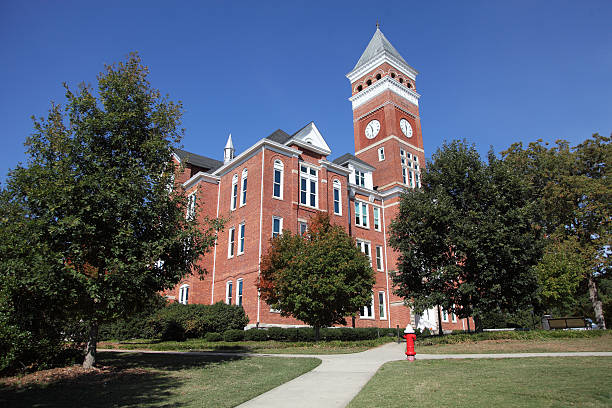Unveiling the Scholarship Landscape in Northern Virginia
Northern Virginia, encompassing vibrant cities, historic sites, and prestigious universities, offers a wealth of educational opportunities. This guide delves into the scholarship landscape for students pursuing undergraduate or graduate studies in this dynamic region.
Understanding Scholarship Options in Northern Virginia
Northern Virginia boasts a diverse range of scholarship opportunities for students, categorized as follows:
- Merit-based Scholarships: Awarded based on academic excellence, standardized test scores, leadership qualities, or specific talents.
- Need-based Scholarships: Awarded based on financial need as demonstrated through the Free Application for Federal Student Aid (FAFSA) or College Scholarship Service (CSS) Profile.
- Diversity Scholarships: Support students from underrepresented backgrounds, promoting inclusivity in higher education.
- Athletic Scholarships: Offered to talented athletes to participate in intercollegiate athletics programs.
- Field-specific Scholarships: Awarded to students pursuing specific academic programs, like engineering, science, or nursing.
- Institutional Scholarships: Offered directly by universities or colleges in Northern Virginia to attract talented students.
- Local Scholarships: Awarded by philanthropic organizations, community foundations, or local businesses within Northern Virginia.
- National Scholarships: Open to students nationwide, but some might have eligibility criteria specific to Virginia residents.
Scholarship Resources in Northern Virginia
Here are key resources to navigate the scholarship landscape in Northern Virginia:
- University and College Websites: Each university or college in Northern Virginia maintains a dedicated scholarship webpage. These pages list their institutional scholarships, eligibility criteria, and application deadlines.
- Community Foundations: Northern Virginia boasts numerous community foundations, like the Community Foundation for Northern Virginia or the Arlington Community Foundation. These organizations manage scholarship funds and award scholarships to deserving students residing in the region.
- Guidance Counselor’s Office: High school guidance counselors possess valuable knowledge about local scholarship opportunities. Schedule appointments to discuss your academic goals and financial needs, and explore potential scholarships you might be eligible for.
- Scholarship Search Engines: Utilize online scholarship search engines like Scholarship America, Fastweb, or CollegeBoard Scholarship Search. These platforms allow you to filter scholarships based on location, academic major, and other relevant criteria.
- Financial Aid Offices: University and college financial aid offices provide guidance and support in securing financial aid, including scholarships and grants. Connect with financial aid advisors to discuss your financial situation and explore scholarship opportunities that can help you achieve your academic goals.
Crafting a Winning Scholarship Application
While scholarship opportunities abound, competition can be fierce. Here’s how to craft a compelling application that sets you apart:
- Strong Academic Record:
Maintain outstanding academic performance throughout high school (or your undergraduate studies for graduate scholarships). Strong transcripts showcasing exceptional grades are a key factor in securing scholarships.
- Standardized Test Scores (if applicable):
Some scholarships might require standardized test scores, like the SAT (Scholastic Assessment Test) or ACT (American College Testing) for undergraduate programs, or the GRE (Graduate Record Examinations) for graduate programs. Achieve competitive scores on these tests if required to strengthen your application.
- Compelling Essays or Personal Statements:
Many scholarships require essays or personal statements outlining your academic goals, financial need, and reasons for pursuing your chosen field of study. Write clear, concise, and engaging essays that showcase your unique voice, aspirations, and potential to contribute positively to your chosen field.
- Letters of Recommendation:
Secure strong letters of recommendation from teachers, professors, or mentors familiar with your academic abilities, work ethic, and potential for success. Choose recommenders who can speak to your unique strengths and suitability for the specific scholarship.
- Highlight Achievements and Extracurricular Activities:
Go beyond academics and highlight relevant achievements, leadership experiences, or volunteer work in your application materials. Did you participate in academic competitions, hold leadership positions in clubs, or volunteer for a cause related to your field of study? Mention these achievements and explain the skills you developed through these experiences.
- Meet Deadlines and Submit Complete Applications:
Missed deadlines can disqualify you from scholarship consideration. Carefully review application deadlines for each scholarship program. Ensure you submit all required documents well before the deadline to avoid any last-minute hiccups. Double-check your application for completeness and accuracy before submitting. Many universities and scholarship organizations utilize online application systems. Familiarize yourself with the specific platform used by each program to ensure a smooth submission process for your application.
Multi-Pronged Approach to Funding Your Education
While scholarships are a fantastic source of financial aid, securing a full scholarship might not always be feasible. Here are additional avenues to explore for financing your education in Northern Virginia:
- Grants:
Several federal and state grants are available to students with financial need. Research grant opportunities offered by the U.S. Department of Education or your state’s education department. Grants are typically need-based and often do not require repayment.
- Financial Aid Packages from Colleges and Universities:
Many colleges and universities in Northern Virginia offer financial aid packages that combine scholarships, grants, work-study opportunities, and loans. Apply for financial aid at each institution you’re considering attending. Carefully review the financial aid package offered by each college or university and compare them to determine which one provides the most comprehensive financial support.
- Work-Study Programs:
Federal work-study programs allow students with financial need to earn money to help cover educational expenses. These programs provide part-time job opportunities on campus or with approved off-campus employers. Participating in work-study programs can help you gain valuable work experience while contributing to your educational costs.
- Part-time Work:
Many students in Northern Virginia find part-time jobs to supplement their income and contribute to their living expenses. Explore job opportunities in retail, restaurants, customer service, or other sectors that offer flexible hours that can accommodate your academic schedule. Remember to balance your part-time work with your studies effectively.
- Support from Family and Friends:
Open communication with your family and friends about your financial needs and explore their potential contribution towards your education. Financial support from family, even if it’s a partial contribution, can significantly lessen your financial burden.
- Military Scholarships and Benefits:
If you’re a veteran or active military service member, explore scholarship and financial aid programs specifically offered to veterans and their families. The U.S. Department of Veterans Affairs provides a wealth of information on educational benefits available to veterans.
Scholarship Resources in Northern Virginia
Here’s a comprehensive list of resources to help you identify scholarship opportunities in Northern Virginia:
- High School Guidance Counselor:
Your high school guidance counselor is a valuable resource for information on scholarships, grants, and financial aid opportunities. Schedule meetings with your counselor to discuss your academic goals and financial situation. They can help you identify scholarships that align with your qualifications and guide you through the application process.
- College and University Financial Aid Offices:
College and university financial aid offices provide comprehensive information on scholarships, grants, and financial aid packages offered by their institutions. Visit the financial aid office websites or schedule appointments with financial aid advisors to discuss your financial needs and explore scholarship opportunities at your chosen institution.
- Community Foundations and Local Scholarship Programs:
Many community foundations and local organizations in Northern Virginia offer scholarships to deserving students. Research scholarship programs offered by local foundations, civic organizations, or businesses in your area. These scholarships might be merit-based, need-based, or specific to certain fields of study.
- Online Scholarship Databases:
Several online scholarship databases can be invaluable tools for your scholarship search. Utilize reputable scholarship search engines like to identify scholarship opportunities based on your academic achievements, extracurricular activities, demographic information, and field of study. Remember to prioritize reputable scholarship databases to avoid scams.
Maximizing Your College Experience in Northern Virginia
Securing funding and gaining admission to a college or university in Northern Virginia opens doors to a stimulating academic environment and a vibrant community. Here’s how to make the most of your educational journey:
- Explore Internship Opportunities:
Many colleges and universities in Northern Virginia offer internship programs with local businesses, government agencies, or non-profit organizations. Participating in internships allows you to gain valuable professional experience in your field of study, build your resume, and potentially develop professional networks that can benefit you after graduation.
- Engage in Research Opportunities:
Many universities in Northern Virginia boast renowned faculty members conducting cutting-edge research in various fields. Explore research opportunities within your department or faculty and consider expressing your interest in assisting professors with their ongoing projects. Research experience strengthens your academic profile, enhances critical thinking skills, and potentially leads to co-authorship opportunities in academic publications.
- Become Involved in Campus Life:
Active participation in campus life enriches your college experience beyond academics. Join clubs, organizations, or student government to connect with like-minded individuals, develop leadership skills, and explore your interests outside the classroom. Northern Virginia universities offer a plethora of student organizations catering to diverse interests, from academic clubs to cultural associations and special interest groups.
- Leverage Career Services:
University career services departments provide valuable resources to help you prepare for your future career. Utilize career counseling services, attend resume-writing workshops, and participate in mock interviews to hone your job search skills and develop a strong professional network. Career services departments can also connect you with internship and job opportunities relevant to your field of study.
- Take Advantage of Northern Virginia’s Resources:
Northern Virginia boasts a wealth of educational and cultural resources beyond the university walls. Explore museums, historical sites, and research institutions in the region. Take advantage of internship opportunities with government agencies or NGOs located in the area. Northern Virginia’s proximity to Washington D.C. provides unique access to cultural events, networking opportunities, and potential internship placements with national organizations.






